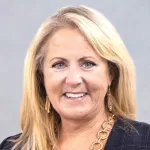Why the Assignment Is Best Left to a Professional
By Linda Dagilus, Steve Hamlin, and Janice Ward

Linda Dagilus

Steve Hamlin

Janice Ward
Years ago, they might have been known as an executor or, in the case of a woman, an executrix. And you still hear those terms occasionally.
But today, the phrase commonly used in reference to an individual handling someone else’s estate is ‘personal representative.’ And while the title may have changed, the responsibilities haven’t. They are significant, and there may actually be more of them today — a list that includes everything from the administration of a will to the handling of funeral arrangements; from preparing a final accounting and tax return to selling an estate; from investigating all claims against an estate and handling them accordingly to, yes, finding a home, or homes, for the pets of the deceased.
This broad and imposing range of responsibilities explains why those with estates, and especially large estates or those with complex assets, should think carefully about whom they choose to be their personal representative to administer their estate after they pass.
While family members have historically handled these duties, increasingly individuals are leaving these matters to third-party professionals, specifically trust officers — and for very good reasons. The most basic is the often-uncomfortable reality that settling an estate can be an unsettling experience, one that can potentially damage and destroy personal family relationships and result in mistakes that a professional might otherwise avoid.
But there are many reasons why individuals are increasingly looking to professionals to be personal representatives. First, they may not have family to turn to, or family they would consider qualified. Indeed, this is a considerable amount of work, some of it complex in nature, to put on someone who is not an expert in this area and has never done it before.
“Those with estates, and especially large estates or those with complex assets, should think carefully about whom they choose to be their personal representative to administer their estate after they pass.”
Also, many people simply don’t want to saddle a loved one with all that responsibility, especially at what will likely be a difficult time for them emotionally and when they are also likely juggling many other aspects of life and work. Additionally, choosing one family member over another to be your personal representative can often lead to conflict with the family member(s) not chosen.
Many of those turning to professionals, such as the Estate Settlement team within Greenfield Savings Bank Wealth Management and Trust Services, are recently divorced or surviving spouses who have found themselves suddenly in charge of their household’s financial savings and investments that had previously been handled primarily by their spouse.
The full list of responsibilities handled by a personal representative helps explain why it is best left to a professional and not a family member. It starts with pets, especially when there is no one else living with the recently deceased individual, but also includes everything from getting mail stopped and forwarded to a new address to securing the property to changing the locks and shutting off the water.
But it quickly proceeds to other, more complex financial matters that include:
• Entering the will into probate and assuring that all legal requirements of the settlement process are completed;
• Accounting for all personal property and arranging for the support of the family;
• Collecting all life insurance, rents, and other amounts due;
• Obtaining appraisals of the property for required tax purposes;
• Preparing a final accounting of the estate; and
• Distributing the estate as directed by the will.
While choosing a family member may seem logical and respectful, and some family members may actually volunteer for this work, most individuals are not fully qualified to handle such duties, and even if they are, they would often be placed in a difficult situation where relationships can become strained and matters can be delayed.
There is often a perception of unfairness if one family member is making all the decisions that affect the personal finances and tax consequences of each beneficiary. For example, is this individual liquidating all the assets — which might cause significant capital gains to family members who pay high tax rates — and are those decisions equally fair and appropriate for all affected parties?
It is a fact: estate administration is complicated and time-consuming. Money can, and often does, complicate relationships. Money can make people do things they wouldn’t ordinarily do. Money can breed distrust — and worse.
And that’s why the work of a personal representative is best left to a professional.
Linda M. Dagilus, vice president and trust officer, has more than 25 years of experience in the financial-services industry. Stephen B. Hamlin, CTFA, senior vice president and senior trust officer, is a certified trust and fiduciary advisor with more than 35 years of experience in trust banking and investment management. Janice E. Ward, Esq., CFP, first vice president and trust officer, is an attorney and certified financial planner with more than 20 years of experience in trust banking and wealth management.





 JD, LLM, CLU, ChFC, AIF, CDFA
JD, LLM, CLU, ChFC, AIF, CDFA




